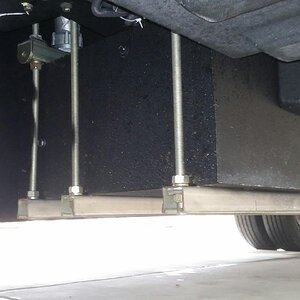karitoki
RVF Regular
- Joined
- Oct 22, 2020
- Messages
- 10
- Location
- Kent, WA
- RV Year
- 1994
- RV Make
- Coachmen
- RV Model
- Santara
- RV Length
- 35’
- TOW/TOAD
- N/A
- Fulltimer
- No
I'm the second owner of a 1994 Coachmen Santara diesel pusher. The coach has 14,800 miles on it, and had $1,800.00 in front end brake work done a month before I bought it. My question is: Is it normal to have to press the brake pedal nearly to the floor to engage the brakes? Doesn't seem right to me. When the brakes do engage they stop fine; I was just expecting an earlier engagement.
Thanks in advance!
Thanks in advance!












